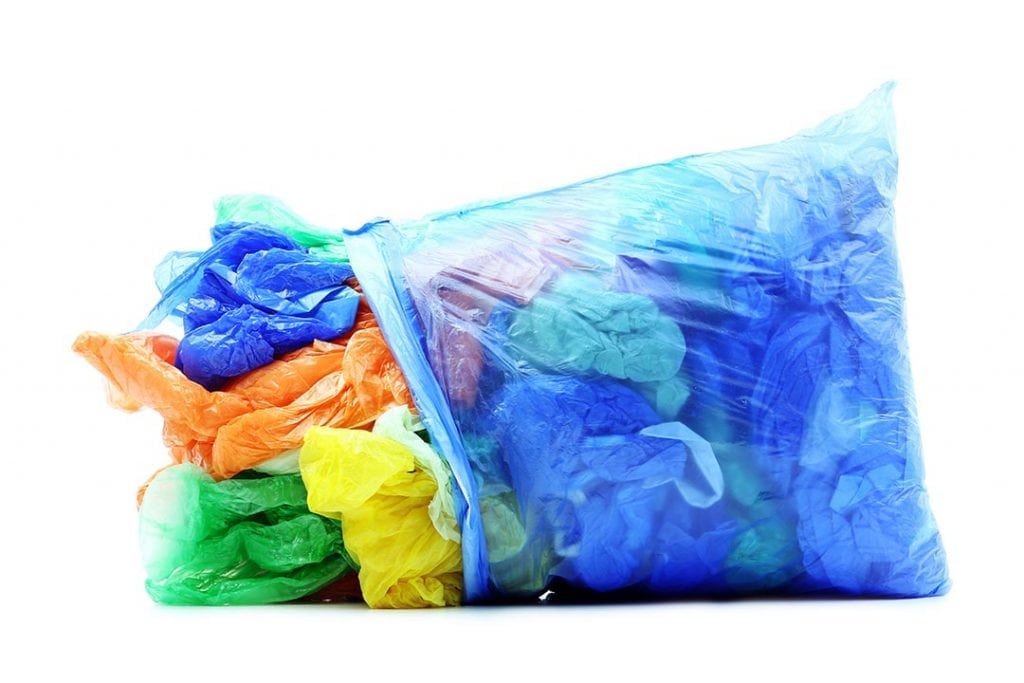
A court case challenging Canada’s ban on some single-use plastic items is moving through the court system and appears poised to head to the Supreme Court. | Pavel Kubarkov/Shutterstock
A federal judge quashed an order from the Canadian government declaring all plastics to be toxic substances, but the effect of the ruling is still unclear.
In May 2021, the Canadian government added all plastic manufactured items (PMI) to its Schedule 1 List of Toxic Substances of the Canadian Environmental Protection Act (CEPA) using an order-in-council, and then banned six single-use plastic items: stir sticks, cutlery, straws, check-out bags, six-ring packs and some foodservice ware.
An order-in-council is an administrative decision made by the federal cabinet. Typically, they’re appointments, regulations or legislative orders related to and authorized by existing legislation.
Days later, the Responsible Plastic Use Coalition challenged the move, naming Dow Chemicals Canada, Nova Chemicals and Imperial Oil on the challenge. The coalition represents 30 plastics companies and three chemical companies.
In June 2023, while the case was pending, Canadian legislators passed Bill S-5, a law that formally amended CEPA to include the list of items. The original order-in-council was then repealed, but the case continued, as Federal Court Judge Angela Furlanetto ruled there was still merit to challenging the legal foundation for listing the items on the List of Toxic Substances.
Recent updates
On Nov. 16, 2023, Furlanetto ruled that the order-in-council that listed all plastic manufactured items was “unreasonable and unconstitutional.”
Furlanetto noted it was unreasonable due to the breadth of the category of “all plastic manufactured items” and because there needs to be evidence to prove toxicity for each item.
“In this case, the [Governor-in-Council], knowing that such a broad extrapolation was not supported by the evidence, and in particular that certain PMI included within the scope of the listing were not toxic, acted outside their authority in listing the broad category of PMI on Schedule 1 in an unqualified manner,” Furlanetto wrote.
It was unconstitutional, Furlanetto found, because CEPA is intended to prohibit and penalize use of substances deemed toxic under the criminal law power, but the order does not seek to restrict toxic substances, but rather to manage plastics in the economy.
“To employ criminal law, what is being restricted has to actually be dangerous i.e., there needs to be a harm,” she wrote. “Otherwise, the restriction amounts to nothing more than economic regulation.”
That also infringes on the powers granted to each province versus the federal government, Furlanetto added.
The federal government plans to appeal the case to the Supreme Court of Canada.
Implications of the ruling
Between the time the ban was announced and the judgment in the case, the deadlines to phase out the six items have already largely passed. The ban on manufacturing and importing the six single-use items came into play in December 2022 and the ban on selling five of the items went into effect in December 2023. As for the final item, six-ring packs, the sale is banned starting in June 2024.
While the order itself was quashed and declared “both invalid and unlawful with retroactive effect,” Furlanetto noted that the decision does not affect Bill S-5 and the court does not have the power to add or remove substances from the current Schedule 1. The ruling also does not affect municipal- or provincial-level bans on plastics.
“It is the order and not Bill S-5 that has been challenged in this application,” she wrote. “As such, it is not open to the court to rule on the constitutional validity of Bill S-5. While the court’s finding on the constitutional validity of the order may bear on the constitutional validity of the listing of PMI on Schedule 1 enacted under Bill S-5, this finding cannot be made without the provision of further argument and evidence from the parties.”

